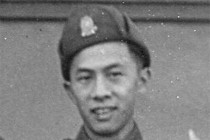
George Seak Lou Wong (K7719) was a member of a very special, very secretive assignment during the Second World War.
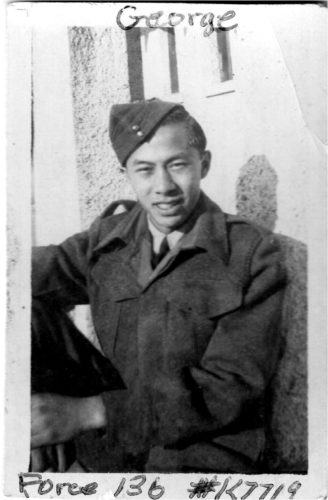
George SL Wong
He was loaned to British Intelligence; trained in survival and guerrilla warfare tactics; and tasked with seeking out and assisting local resistance movements in the jungles of South East Asia. To do this, Wong was told he would be assigned to a small team that would be parachuted behind Japanese lines and essentially left to survive on their own wits.
Everyone knew the Japanese had a reputation for ferocity. Wong understood that if caught, he would not be viewed as a regular solider: the Japanese who see him as a spy and he would executed. A cyanide capsule would be on him at all times.
When Canada first entered the war, Wong was working as a welder’s helper in a local shipyard.
Like many young Chinese Canadians he was eager to serve his country. However, like so many others, he was not called up because of his race.
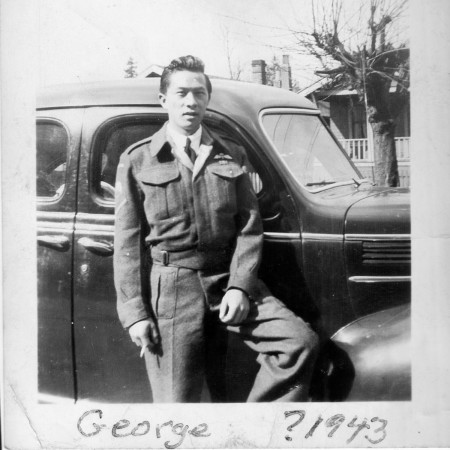
George SL Wong stands next to car. Likely shot in Canada circa 1943.
When Japan entered the war, however, and took over vast areas of Southeast Asia, British Intelligence starting looking for agents who could be dropped into occupied zones and easily blend in with the locals. The British soon realized there were a vast number of Chinese in Canada who were loyal to the crown and spoke Cantonese.
Wong got the call and completed his basic training in Maple Creek, Saskatchewan. He was then shipped to India where he continued his guerrilla-style training and jungle survival exercises including parachute training.
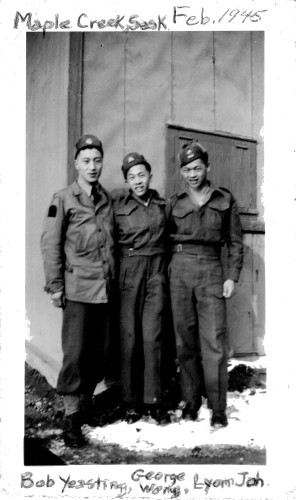
George SL Wong (centre) flanked by his buddies Bob Yeasting (l) and Lyon Joh.
He did not have an easy time in India. Strangely one of the worst things that happened to Wong occurred not during his training, but while simply walking on the road. He was struck by a pedicab and was injured badly enough that he was hospitalized for a few days. At another point, he was hospitalized for dysentery … a disease not uncommon amongst Force 136 members. That illness delayed his deployment into the jungle.
In the late summer of 1945, Wong was scheduled to be parachuted into Japanese-occupied Burma. He was about to replace two radio operators who had been killed. Fortunately for Wong, Japan surrendered on August 15, 1945 and slowly isolated Japanese troops throughout Southeast Asia put down their rifles. For Wong, the timing meant he would no longer have to face the perils of the jungle.
Wong stayed behind after the war was over to help the British ensure an orderly transition.
He returned home to Canada in early 1946, was discharged in April of that year. Two years later, he married his sweetheart Anita Davida Joh. They had two sons and a daughter.
Special thanks to Gary Wong for providing information as well as these photos of his father.
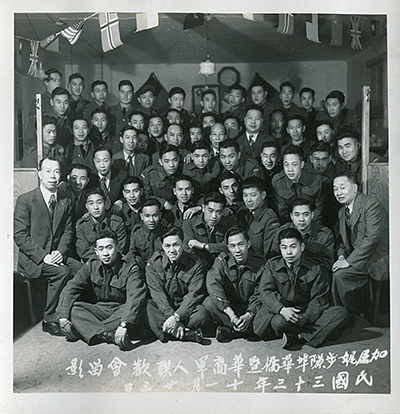
Final dinner after basic training. Dinner held in Maple Creek, Saskatchewan and hosted by local Chinese businessmen. George S.L. Wong is front row, second from right.
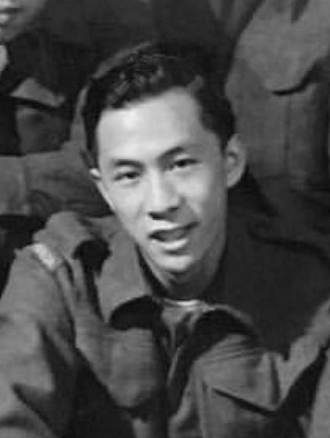
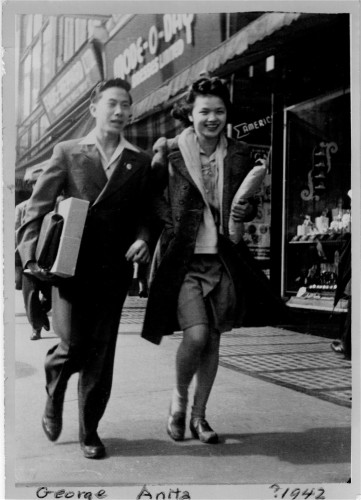
George SL Wong with his girlfriend (later wife) Anita Davida Joh.